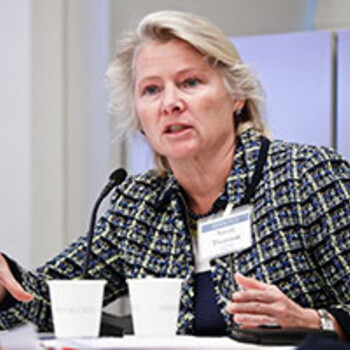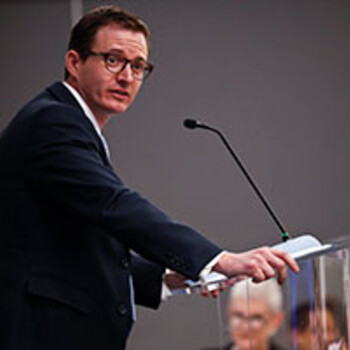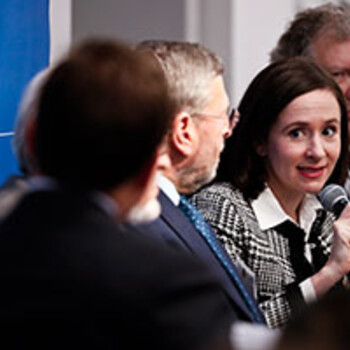Brookings-Yale Workshop Looks at the Way Forward for U.S.-China Relations


Susan Thornton, Senior Fellow of the Paul Tsai China Center, speaks at the Brookings Institution on October 30, 2018
On October 30, 2018, the Paul Tsai China Center of Yale Law School and the John L. Thornton China Center of the Brookings Institution jointly held a high-level, closed-door workshop to discuss U.S.-China relations today and going forward. The event, which took place at Brookings in Washington D.C., was the first major collaboration between the two institutions. The day-long event brought together a large group of leading U.S. experts on China and U.S.-China relations.
With the U.S.-China relationship under strain, the workshop addressed numerous questions about the future of U.S.-China relations, including: What are American and Chinese interests as China rises? Where do they conflict and where might they still be complementary? What should be the objectives and components of a future American strategy for responsible competition with China?

Robert Williams, Executive Director of the Paul Tsai China Center, gives remarks at the Brookings Institution on October 30, 2018
The premise of the workshop was that government, academic, military, and private-sector leaders in the United States must address these questions with renewed intensity and collaborative discussion if our country is to develop and implement a sustainable and successful long-term strategy on China.
The October 30 event had three main elements. First, there were three panel discussions:
- U.S. analyses of Chinese interests, as well as its objectives in the region and the world
- U.S. interests and objectives in Asia, and with China
- Options for U.S. strategy

Mira Rapp-Hooper, Senior Fellow of the Paul Tsai China Center, participates in a panel on U.S. interests and objectives toward China
Second, former National Security Advisors Stephen Hadley and Susan Rice participated in a lunchtime “fireside conversation” discussing their views on the future of the U.S.-China relationship and the future of U.S. strategy. A transcript of that important discussion appears here.
Third, a public debate was held on the question “Are U.S. and Chinese long-term interests fundamentally incompatible?” The debate participants were David Lampton, Evan Medeiros, Thomas Wright, and Susan Thornton, Senior Fellow of Yale Law School’s Paul Tsai China Center. Evan Osnos moderated the debate.
Watch a video of that debate.4
Brookings and Yale intend to schedule follow-up collaborative events to continue to address the major issues addressed at this October 30 workshop.


